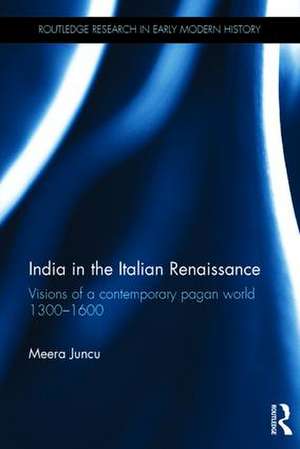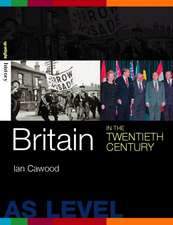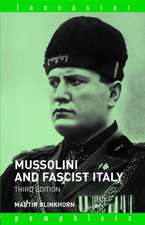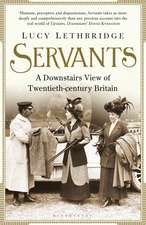India in the Italian Renaissance: Visions of a Contemporary Pagan World 1300-1600: Routledge Research in Early Modern History
Autor Meera Juncuen Limba Engleză Hardback – 17 aug 2015
Meera Juncu draws from a wide-ranging selection of contemporary travel literature to trace the development of Italian ideas about Indians both before and after Vasco Da Gama’s landing in Calicut. After an introduction to the key concepts and a survey of inherited notions about India, the works of a diverse range of writers and editors, including Marco Polo, Petrarch and Giovanni Battista Ramusio, are analysed in detail. Through its discussion of these texts, this book examines whether ‘India’ came in any way to represent a pagan civilization comparable to the classical antiquity celebrated in Italy during the Renaissance.
India in the Italian Renaissance offers a new and exciting perspective on this fascinating period for students and scholars of the Italian Renaissance and the history of India.
| Toate formatele și edițiile | Preț | Express |
|---|---|---|
| Paperback (1) | 386.81 lei 6-8 săpt. | |
| Taylor & Francis – 12 dec 2019 | 386.81 lei 6-8 săpt. | |
| Hardback (1) | 1057.13 lei 6-8 săpt. | |
| Taylor & Francis – 17 aug 2015 | 1057.13 lei 6-8 săpt. |
Din seria Routledge Research in Early Modern History
-
 Preț: 326.55 lei
Preț: 326.55 lei -
 Preț: 377.28 lei
Preț: 377.28 lei -
 Preț: 303.80 lei
Preț: 303.80 lei -
 Preț: 313.91 lei
Preț: 313.91 lei -
 Preț: 312.56 lei
Preț: 312.56 lei -
 Preț: 324.64 lei
Preț: 324.64 lei -
 Preț: 311.14 lei
Preț: 311.14 lei -
 Preț: 326.49 lei
Preț: 326.49 lei -
 Preț: 305.71 lei
Preț: 305.71 lei -
 Preț: 314.44 lei
Preț: 314.44 lei - 9%
 Preț: 1004.63 lei
Preț: 1004.63 lei -
 Preț: 325.72 lei
Preț: 325.72 lei -
 Preț: 311.43 lei
Preț: 311.43 lei -
 Preț: 310.22 lei
Preț: 310.22 lei -
 Preț: 309.60 lei
Preț: 309.60 lei -
 Preț: 310.56 lei
Preț: 310.56 lei -
 Preț: 326.49 lei
Preț: 326.49 lei - 18%
 Preț: 998.71 lei
Preț: 998.71 lei -
 Preț: 416.22 lei
Preț: 416.22 lei - 31%
 Preț: 765.84 lei
Preț: 765.84 lei - 31%
 Preț: 763.81 lei
Preț: 763.81 lei -
 Preț: 382.47 lei
Preț: 382.47 lei -
 Preț: 416.09 lei
Preț: 416.09 lei - 31%
 Preț: 764.62 lei
Preț: 764.62 lei - 18%
 Preț: 995.54 lei
Preț: 995.54 lei - 18%
 Preț: 1000.27 lei
Preț: 1000.27 lei -
 Preț: 392.67 lei
Preț: 392.67 lei - 31%
 Preț: 765.43 lei
Preț: 765.43 lei - 30%
 Preț: 769.11 lei
Preț: 769.11 lei - 28%
 Preț: 655.70 lei
Preț: 655.70 lei - 18%
 Preț: 1000.27 lei
Preț: 1000.27 lei - 18%
 Preț: 1060.25 lei
Preț: 1060.25 lei - 31%
 Preț: 678.69 lei
Preț: 678.69 lei - 18%
 Preț: 1054.71 lei
Preț: 1054.71 lei - 18%
 Preț: 1001.07 lei
Preț: 1001.07 lei - 30%
 Preț: 819.32 lei
Preț: 819.32 lei - 31%
 Preț: 763.81 lei
Preț: 763.81 lei - 30%
 Preț: 847.31 lei
Preț: 847.31 lei -
 Preț: 382.36 lei
Preț: 382.36 lei - 31%
 Preț: 764.20 lei
Preț: 764.20 lei - 19%
 Preț: 279.31 lei
Preț: 279.31 lei
Preț: 1057.13 lei
Preț vechi: 1289.18 lei
-18% Nou
Puncte Express: 1586
Preț estimativ în valută:
202.35€ • 219.87$ • 170.08£
202.35€ • 219.87$ • 170.08£
Carte tipărită la comandă
Livrare economică 22 aprilie-06 mai
Preluare comenzi: 021 569.72.76
Specificații
ISBN-13: 9781138860827
ISBN-10: 1138860824
Pagini: 270
Ilustrații: 6 black & white halftones
Dimensiuni: 156 x 234 x 20 mm
Greutate: 0.52 kg
Ediția:1
Editura: Taylor & Francis
Colecția Routledge
Seria Routledge Research in Early Modern History
Locul publicării:Oxford, United Kingdom
ISBN-10: 1138860824
Pagini: 270
Ilustrații: 6 black & white halftones
Dimensiuni: 156 x 234 x 20 mm
Greutate: 0.52 kg
Ediția:1
Editura: Taylor & Francis
Colecția Routledge
Seria Routledge Research in Early Modern History
Locul publicării:Oxford, United Kingdom
Public țintă
PostgraduateCuprins
List of illustrations 1 Changing representations of pagan Indians in Italian culture c.1300 to c.1600 2 Preconceptions of the Indians c.1300 3 Transformations of medieval Indian tradition in Marco Polo’s Il milione 4 A fourteenth-century religious view of the Indians: Odorico’s relatio and its re-presentation by Mandeville 5 Gymnosophists, gods and the Greeks: India among the humanists from Petrarch to Alberti 6 Novelty and humanity in Poggio Bracciolini’s representation of the Indians 7 India ‘recognita’? The fifteenth-century reception of Poggio’s portrayal of the Indians 8 Following Da Gama’s wake: Italian visions of ‘Portuguese’ India (c.1500-c.1514) 9 A new Ulysses’ Indians: the Itinerario of Ludovico de Varthema 10 A polyphony of modern voices: Ramusio’s contribution to understandings of Indians 11 Popularized Jesuit views 12 Late-sixteenth-century merchant perspectives Conclusion Index
Notă biografică
Meera Juncu received her doctorate in Italian Renaissance studies from the University of Cambridge.
Descriere
India in the Italian Renaissance surveys the changing representations of pagan Indians in Italian culture from the late medieval period to the end of the 16th century. Curiosity for the world well beyond Italy, and the freedom to decide what one thought of it, were important features of Italian Renaissance culture. Therefore the response to the challenge of contemporary pagan worlds was one of twists and turns. Although contemporary pagan India was never endorsed by Italian humanist culture, this study shows that there are indications that, as the image of contemporary India evolved, so its ancient pagan past began to be mythologized as on a par with the classical world.











